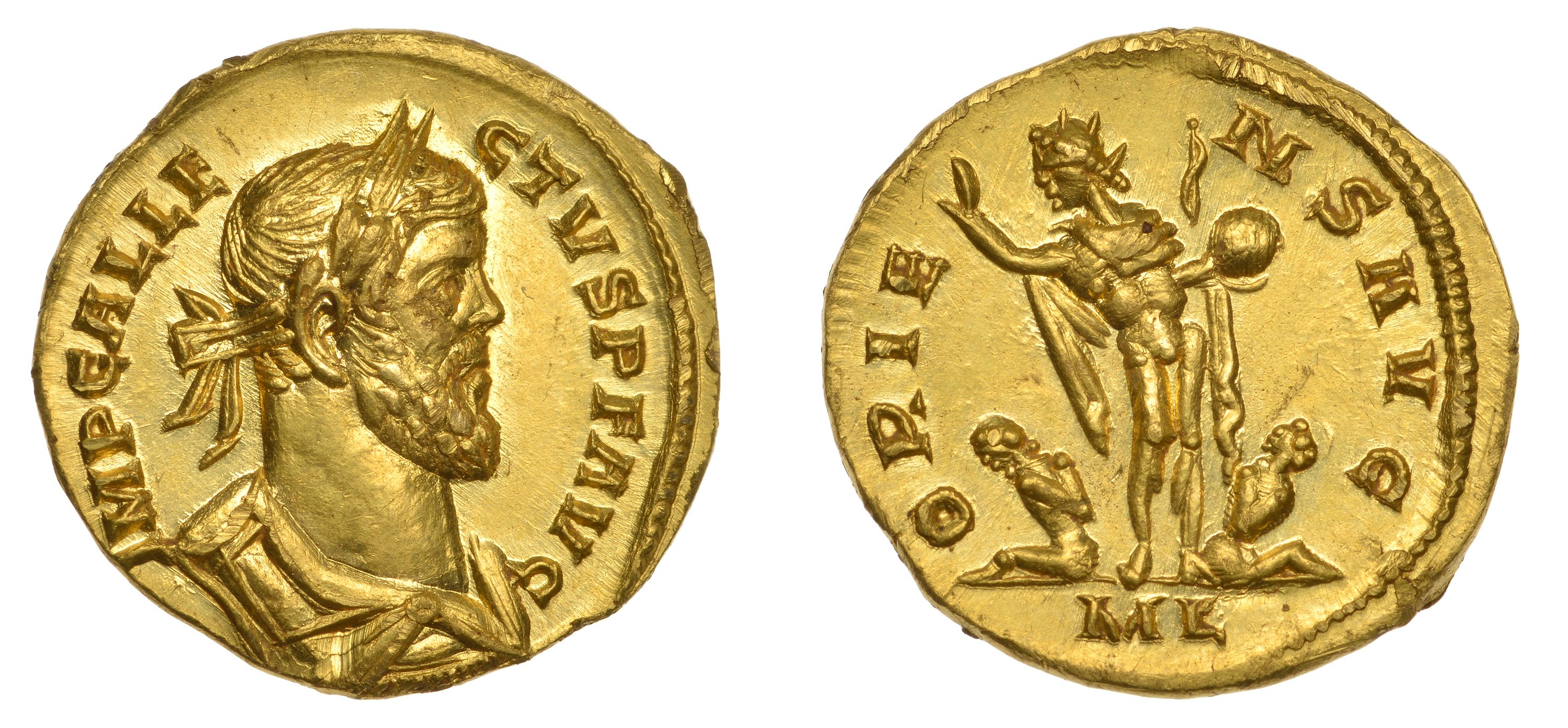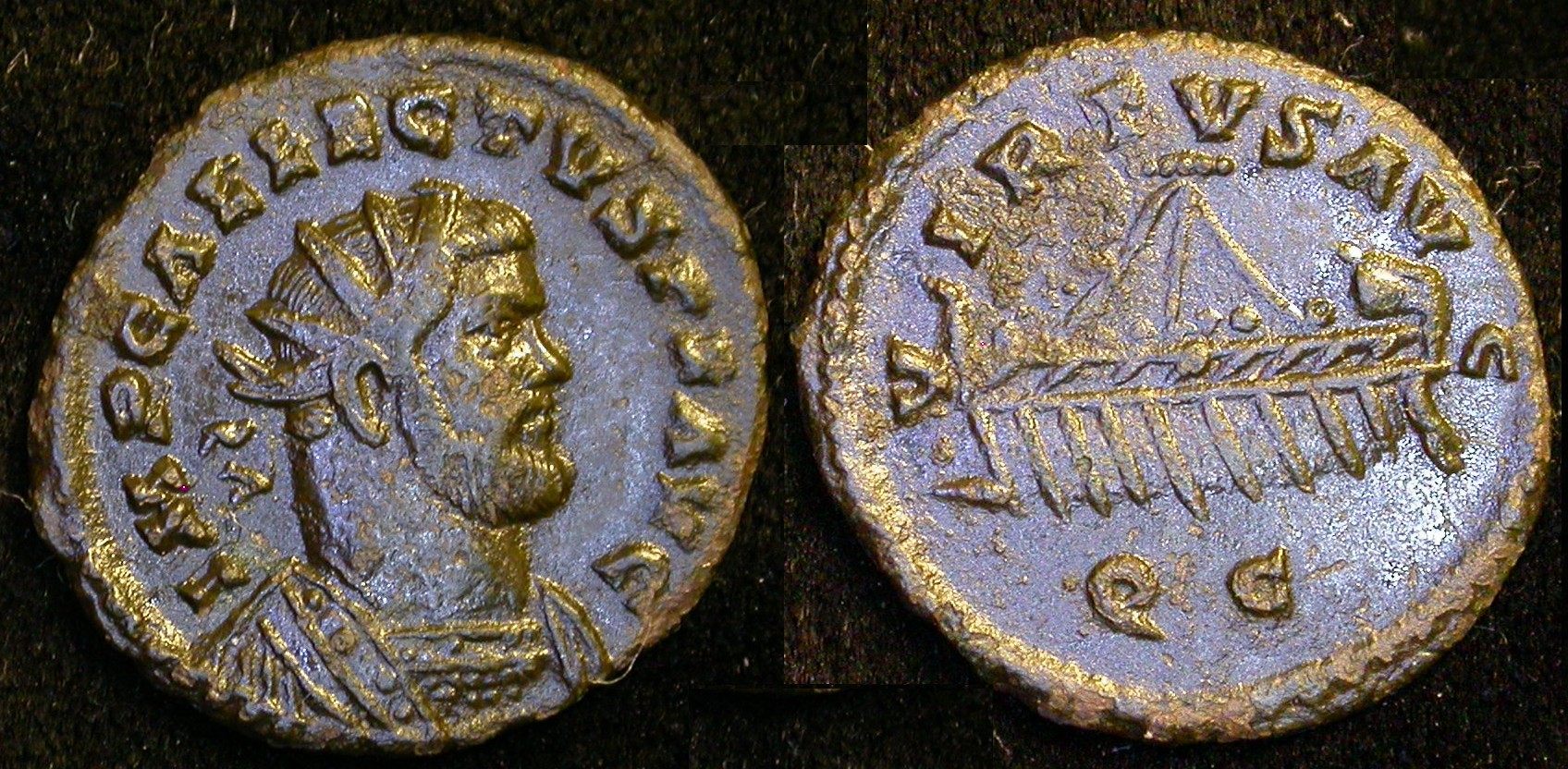Found: A Gold Coin From Britain’s Roman Revolt
Allectus only reigned for three years, but here he is, nearly two millennia later.

From the years 286 to 296, a crew of Roman dissidents reigned over a Britain severed from the rest of the Roman Empire. The revolt was instigated by Carausius, but he didn’t see it through to the end: His own finance minister, Allectus, offed Carausius in 293, and took over until the independent outpost fell three years later.
Little is known about Allectus, but traces of his brief reign can still turn up in the most unexpected of places. Just last month, in a field in the southeastern English county of Kent, an amateur metal detectorist stumbled upon a gold coin bearing the ancient emperor’s face. (The opposite side depicts two figures kneeling to the god Apollo.) He found it near an ancient Roman road, after 45 minutes of a search that turned up only “bits of old tractors and shotgun cartridges,” according to the anonymous detectorist.
The coin had some weight to it—a relatively hefty 4.31 grams—which suggested that it just might be the real deal. Sam Moorhead, the British Museum’s Adviser for Iron Age and Roman coins, then authenticated the find by linking it to another Allectus coin in the Museum’s collection. Certifiably ancient, the newly discovered Aureus—or gold Roman coin—will hit the block at London’s Dix Noonan Webb auction house on June 12, 2019. DNW estimates that it well sell for between £70,000 and £100,000—that’s potentially more than 130,000 dollars.

That’s because buyers may never get another chance to acquire an Allectus Aureus. According to DNW, this is the first one discovered in more than 50 years, and only the 24th known to exist. (The British Museum’s item was found in the 19th century, in the town of Silchester.) It is only the second to be discovered in Kent, and the very first to head to auction.
Nearly two intervening millennia notwithstanding, the coin is a timely find. Last month, Moorhead gave a lecture at the British Museum “on Carausius, Allectus and the first Brexit,” so-called for the emperors’ efforts to disentangle Britain from greater Rome. With the United Kingdom now on the verge of departing the European Union, it’s no wonder that Allectus finally decided to show his face again.








Follow us on Twitter to get the latest on the world's hidden wonders.
Like us on Facebook to get the latest on the world's hidden wonders.
Follow us on Twitter Like us on Facebook